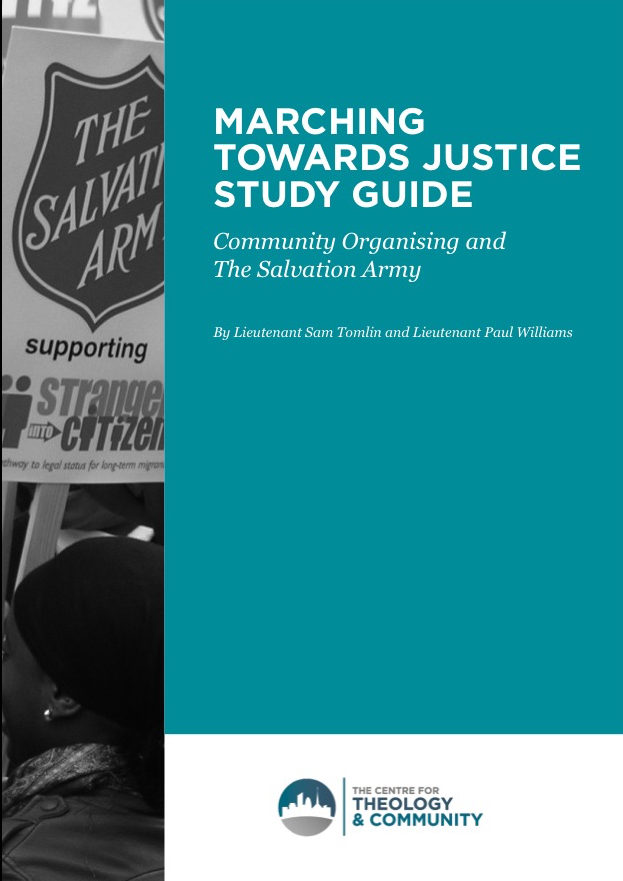We’re very excited to make the new Marching Towards Justice Study Guide available for download here!
This study guide is aimed at those attending or working at Salvation Army Corps or Centres who are interested in social justice, although it will be useful for many other settings. The four sessions cover history, method (x2 sessions) and next steps. They are intended for a small group setting (e.g. a home group or staff team meeting) and should be done alongside the reading of the Marching Towards Justice, which can be downloaded here.
Continue reading “NEW Marching Towards Justice Study Guide now available to download here!”


 rom the introduction to:
rom the introduction to: 